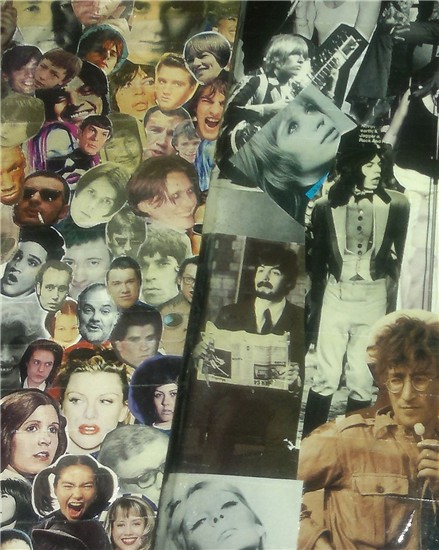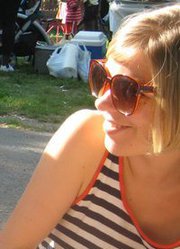Does the physical diary/scrapbook live on in the digital age? Claire Hamilton, a BBC journalist, tells her story.
 I have no recollection of what possessed me to start a daily diary, but I remember my first volume was a small, novelty notebook which I won at a friend’s birthday party in 1982. I was six years old. Since then, I have attempted to write an entry every single day. Initially, my childish musings extended to little more than a dull list of which family members (and pets) accompanied us on day trips, but from 1992 onwards, my diary became much more.
I have no recollection of what possessed me to start a daily diary, but I remember my first volume was a small, novelty notebook which I won at a friend’s birthday party in 1982. I was six years old. Since then, I have attempted to write an entry every single day. Initially, my childish musings extended to little more than a dull list of which family members (and pets) accompanied us on day trips, but from 1992 onwards, my diary became much more.
Since then, I have a strict routine at the start of each year. I buy a large, hard-back page-per-day narrow lined diary and generally create a collage for the front cover—usually pictures torn from magazines, postcards or vintage wrapping paper. My diaries have evolved to become scrapbooks too—I add tickets to music shows, the theatre, festival wrist bands, passport photos, press passes . . . anything which otherwise would have no other home, but which serves as a record of my day.
I have few rules when it comes to writing the diary. As a teenager, I resolved never to write it in a bad mood, as I didn’t want to be reminded of negative things, but that changed with the death of a friend in 1994. Having a diary made dealing with his death so much easier—though I have never been able to read those entries. I think the act of writing cleanses me of the day’s stresses; a problem always seems smaller once it’s written down.
And yes, I do still write by hand! Typing wouldn’t feel as though it was me writing—and I like the continuity, seeing my handwriting change over the years. My diary has also served as a collective memory for my friends, as I can tell them exactly what we were doing on any given day. For my school days, this is particularly useful. As our memories fade, it’s hilarious to have a first-hand account of the boredom and monotony of my teenage years, and a reminder of the hopes and aspirations I had then.
 I’ve been very fortunate to meet some powerful people as part of my job, so being able to record those meetings—from a historical point of view—is interesting. I have the press pass from the day I met former British Prime Minister Tony Blair, and a detailed account of encounters with Quentin Tarantino and Dennis Hopper. I know I wouldn’t want anyone to read my diary in my lifetime, but I feel compelled to continue it so I have a full record of (almost) my whole life, to look back on when I am old! I hate the thought of a day passing unrecorded.
I’ve been very fortunate to meet some powerful people as part of my job, so being able to record those meetings—from a historical point of view—is interesting. I have the press pass from the day I met former British Prime Minister Tony Blair, and a detailed account of encounters with Quentin Tarantino and Dennis Hopper. I know I wouldn’t want anyone to read my diary in my lifetime, but I feel compelled to continue it so I have a full record of (almost) my whole life, to look back on when I am old! I hate the thought of a day passing unrecorded.
Claire Hamilton is a Liverpool-based BBC radio journalist who spent a year on a career break in New York, during which time she conducted volunteer research for the Morgan’s exhibition The Diary.
